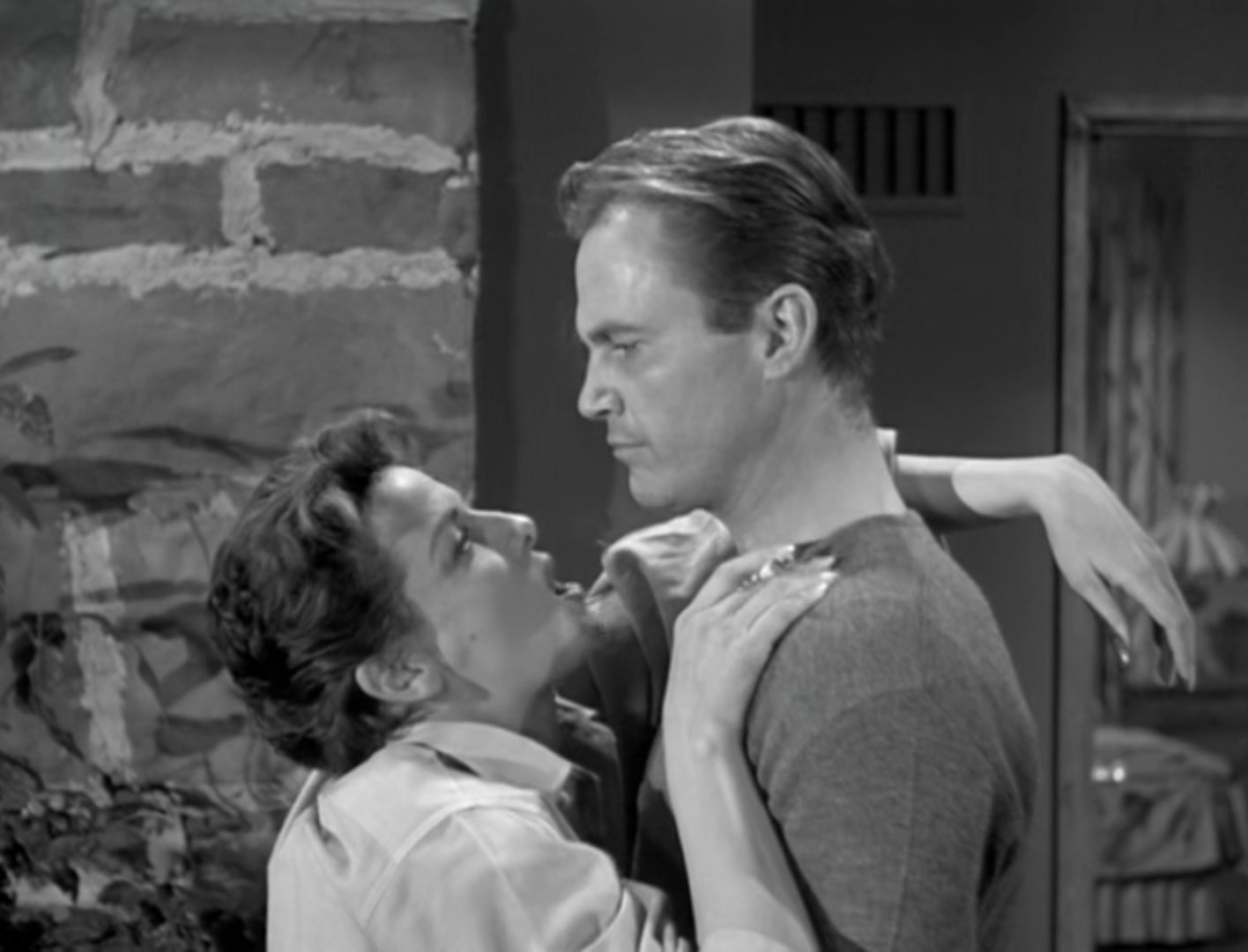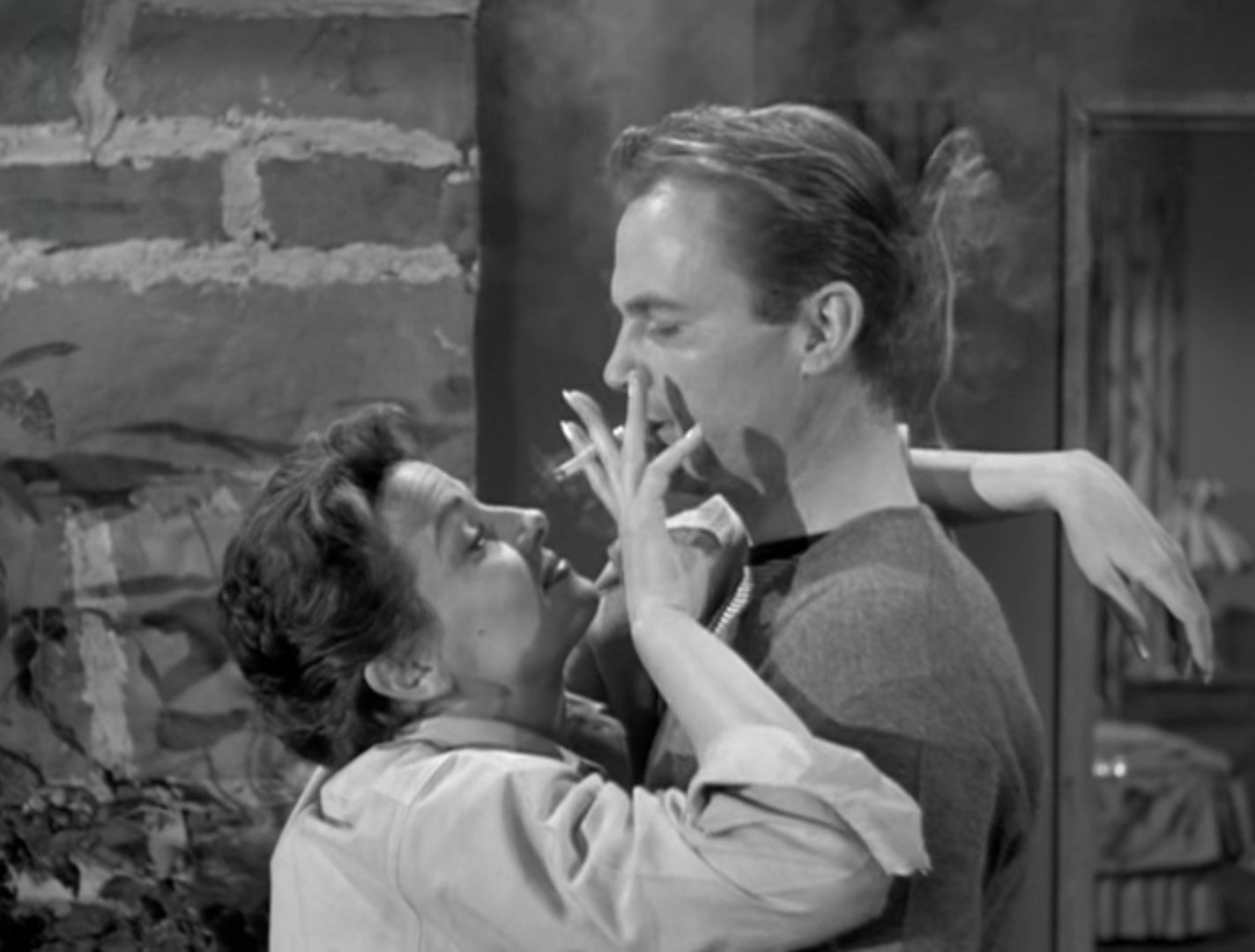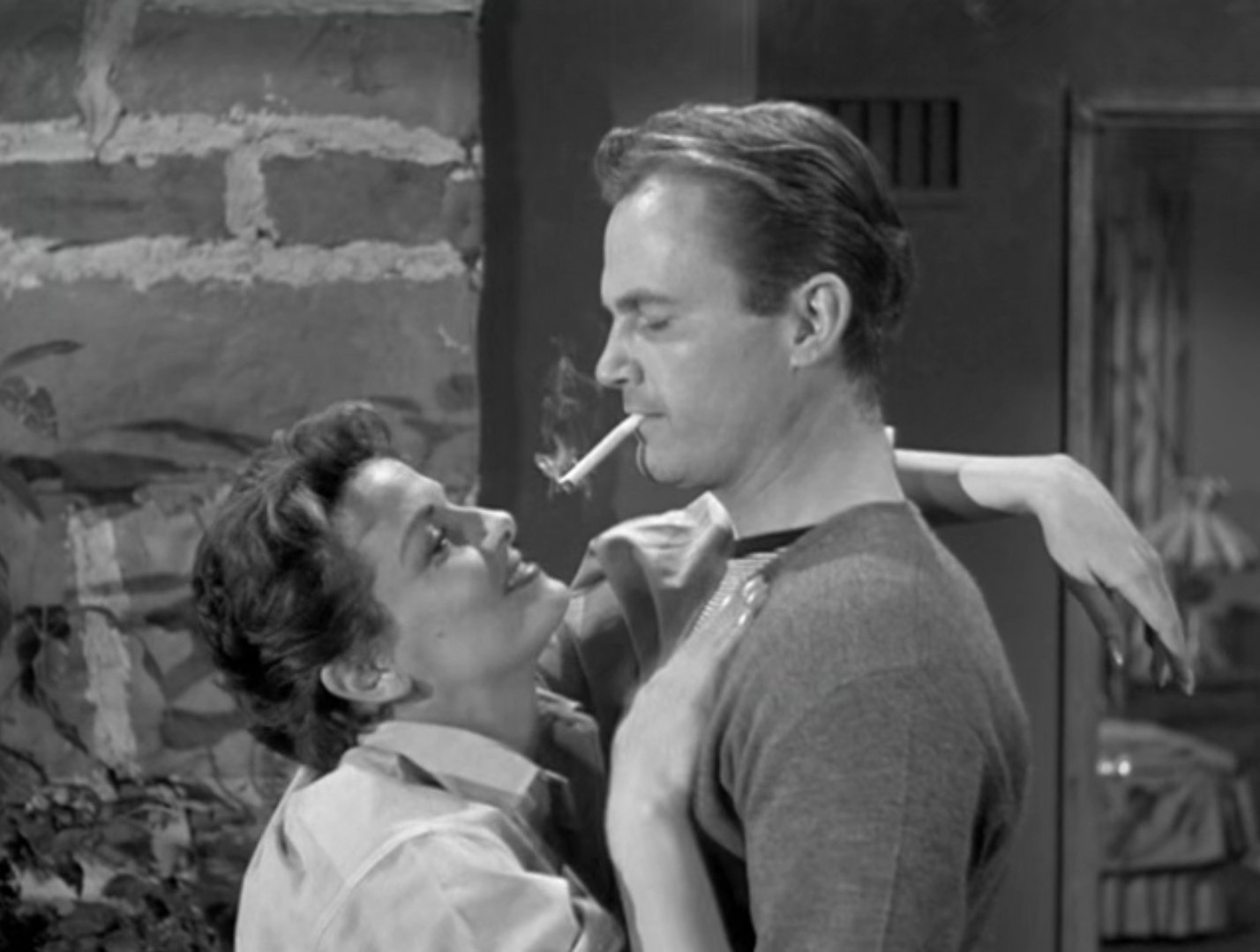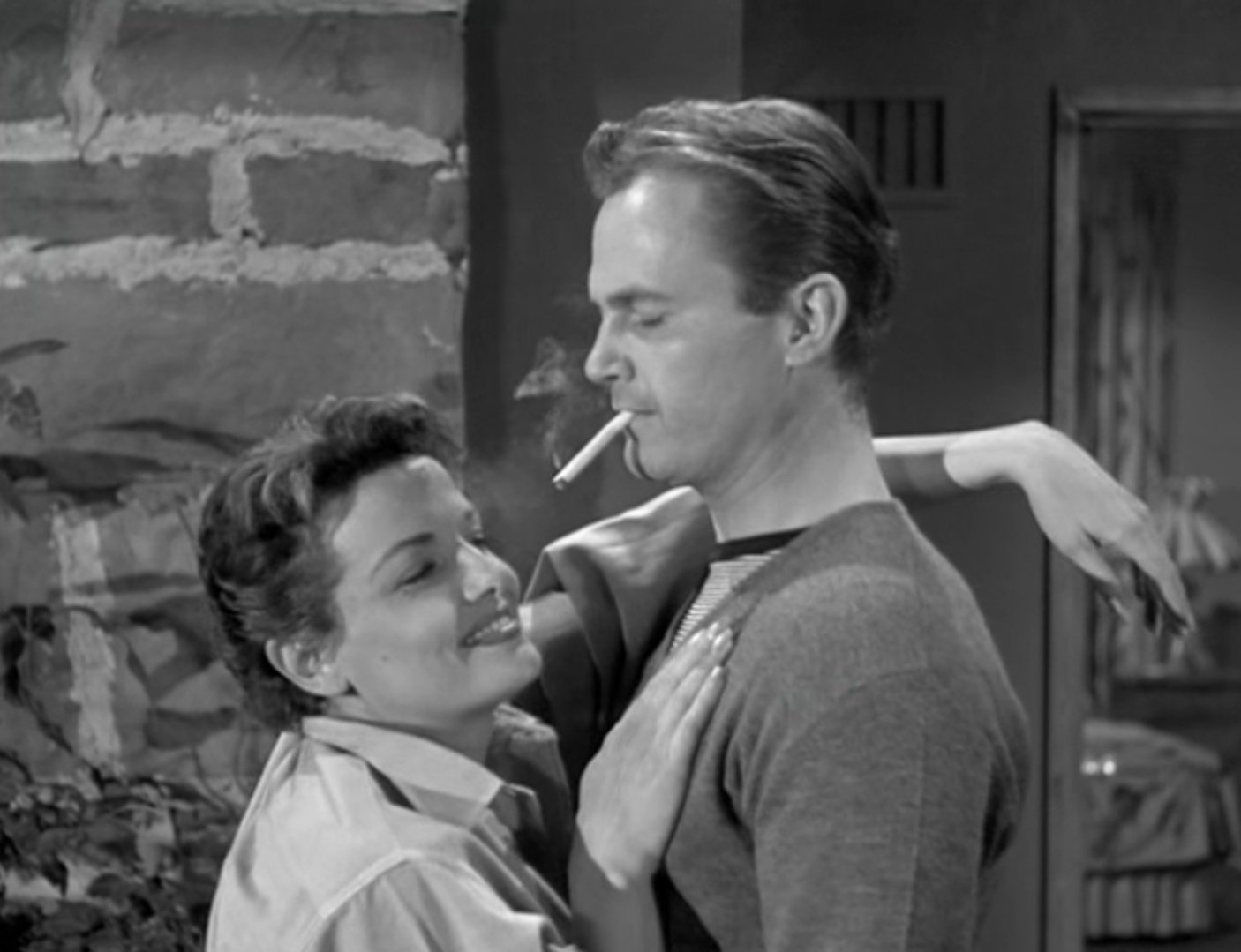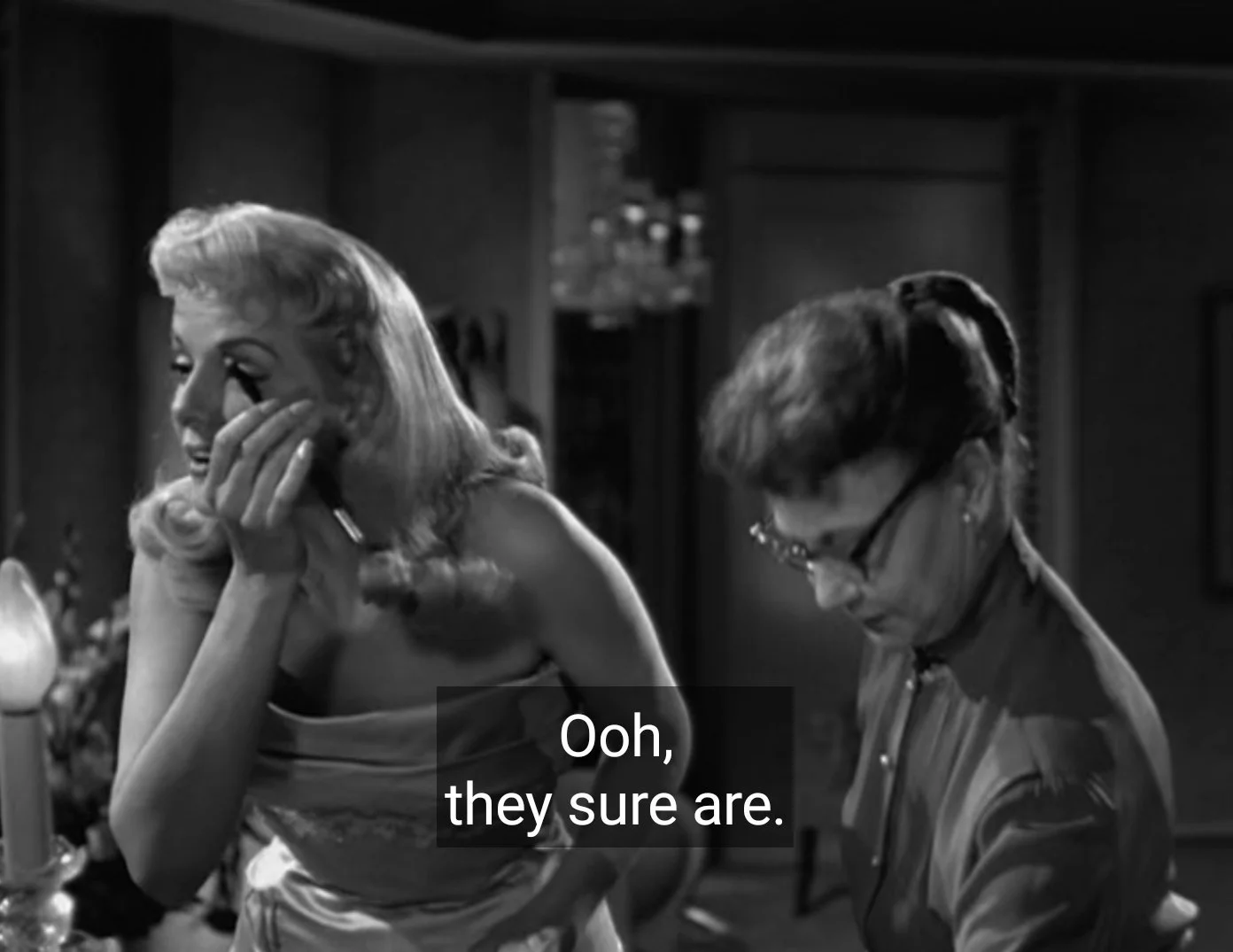The Fuzzy Pink Nightgown (1957): we need to talk about Jane Russell in menswear
The Fuzzy Pink Nightgown // dir. Norman Taurog // United States
The Fuzzy Pink Nightgown has everything: Jane Russell in a cheap blonde wig, Ralph Meeker kidnapping someone, Keenan Wynn third-wheeling, Hollywood insider shenanigans, action intrigue, cops getting knocked out with ash trays, Una Merkel wise-cracking, eggnog-induced drunken antics, Adolphe Menjou gliding around like it’s 1937, and of course, confusing and troubling moral ethics baked right into the script!
Yes, this film is about a movie star falling in love with her violent and frightening kidnapper. And, also yes, Jane Russell is a pure powerhouse of charisma and Ralph Meeker is a rare and perfect male energy match for her.
Look, I love The Fuzzy Pink Nightgown. I need to enumerate every reason.
Let me give you the short pitch: It’s Noirvember (shout-out to founder Marya E. Gates), so why not watch Jane Russell swagger in a Double Indemnity-style wig while tussling with Ralph Meeker who is being violent, anti-social, and cynical---BUT IT IS A ROMANTIC COMEDY!
The Fuzzy Pink Nightgown defies explanation.
On one hand, it feels low-budget and takes place mostly in one location that could double for a set from a television show. On the other hand, it is Jane Russell, Ralph Meeker, and Keenan Wynn each at peak powers doing a cleverly-paced three-hander.
Jane Russell produced this film (her fourth film with her production company Russ-Field), and plays the lead: Laurel Stevens, a glamorous movie star frustrated by her limiting sex symbol status. Russell counted this as her favorite film (alongside Gentlemen Prefer Blondes), and it feels very attuned to her. Laurel Stevens knows the misogynistic game in Hollywood, and she is happy to name it, making it clear in diatribe against studio executives she shares with her assistant (Una Merkel !!!) right at the top of the film:
“Oh, sure, when they were pushing me around, it was just good business. But let me start dishing out a little action, and I’m tough and temperamental.”
She continues, speaking of desire for personal autonomy, “I’m just a simple business girl. I sell a funny, phoney commodity called sex, and if the customers are hungry enough to buy it, I run my factory in my own way.”
She heads out the door of her home to a waiting car taking her to the premiere of her new film, The Kidnapped Bride. Instead of chauffeurs, it’s Ralph Meeker and Keenan Wynn--and they literally kidnap her to hold her for ransom.
Laurel Stevens is in no way frightened of her kidnappers, and is instead horrified that the press and movie-going public are going to think this is a publicity stunt and turn against her. Her agent and film producer (Adolphe Menjou !!!) are worried about this too, so they are unwilling to report her missing. The kidnappers have her holed up in a Malibu beach house (Kiss Me Deadly crossover potential), but she is not going to make it easy.
Shenanigans ensue.
Jane Russell’s work here is supremely confident. She truly feels like she’s two feet taller than everyone else. She doesn’t glide through the film. She smashes her way through the film. She is funny, cynical, powerful, and so very present.
The wig comes off (spoiler alert!), Ralph Meeker’s Mike (not Mike Hammer, but god can you imagine!) becomes fixated with what that wig means in terms of authenticity. He apparently has some childhood trauma related to a candy store that lied to him about bubble gum and anyway that is why he hates phonies and is angry about a wig? Listen, I love it.
Laurel: "Look, what have you got against me, anyway?"
Mike: “I don't like phonies. When I was a kid, there was a little weasel that ran a candy store on Coney Island. Sundays and holidays, he put a big sign in the window: "Free Bubblegum." Only the store was always closed. I never got enough of hating that guy.”
This film was not financially successful, and the critics had mixed-feelings. In particular, critics felt very meh about Meeker’s rough and gruff performance, and wanted someone a little more classically funny. But, genuinely, his decision to play this ostensibly light comedy character as a smirking, brutalist cynic barely containing his ever-present rage is genius.
If he was less terrifying, I might feel a little better about the fictional characters’ happily-ever-after actually working out (LAUREL, RUN!), but as it is, Russell and Meeker play off each other in a perfect sync. In their mouths, rote 1950s studio dialogue is given life that it probably doesn’t deserve, and I am left quietly cackling to myself.
And, oh Keenan Wynn. What a genuine great. I have extolled his virtues here before, but really I always need people to really grasp how good he was as an actor. His Dandy here is the understanding sweetie of the kidnapping duo and the third wheel of a dangerously toxic long weekend in Malibu. He comes off as being just a little in love with both Laurel and Mike, and both of them continuously and selfishly use him to their own ends. For an intended comedic side-kick in studio comedy, he gives a surprisingly tender and emotionally-aware performance. Dandy is the unexpected little beating heart to the movie (and also my personal cinema avatar, but let’s not get into that right now).
I LOVE THIS WEIRD MOVIE.
Genuinely, I guess I can see why it was not popular in its contemporary release, because it is ever-so-slightly unhinged, but also please follow me on this journey to bring about The Fuzzy Pink Nightgown renaissance, so I can finally get a home video release.
I mean, Jane Russell, because of plot machinations, essentially only is seen in repurposed menswear throughout the film, and the power that has is indescribable.
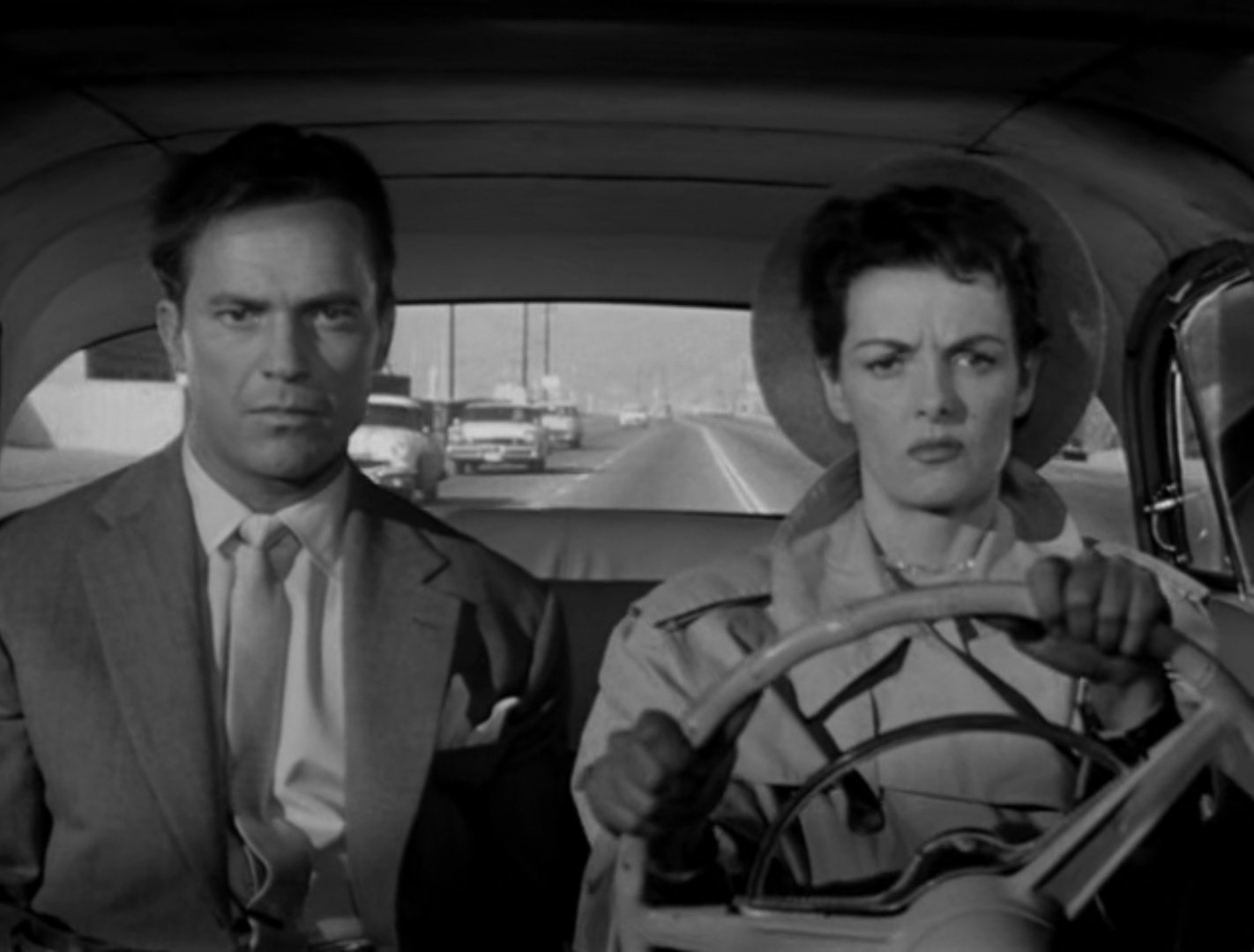
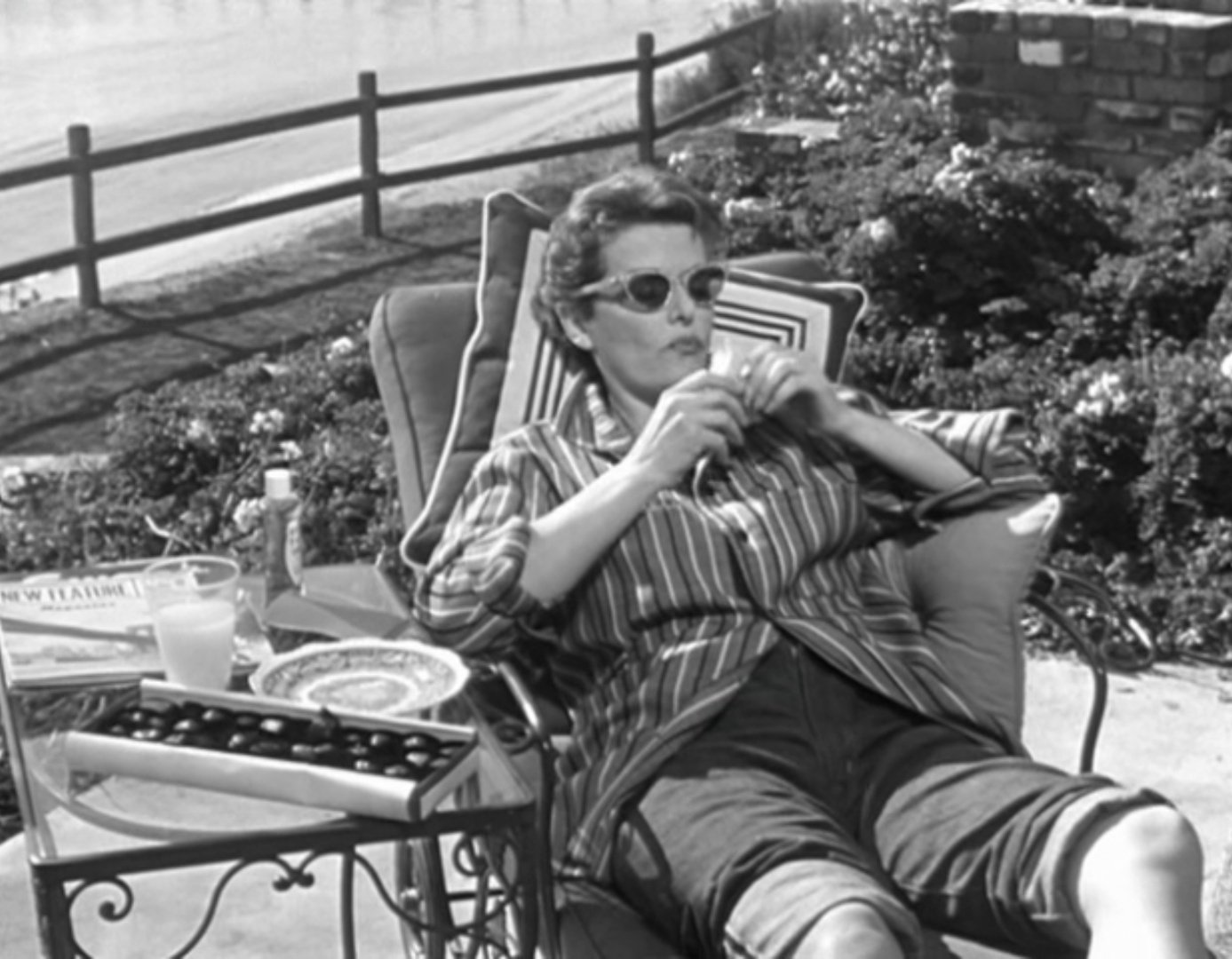
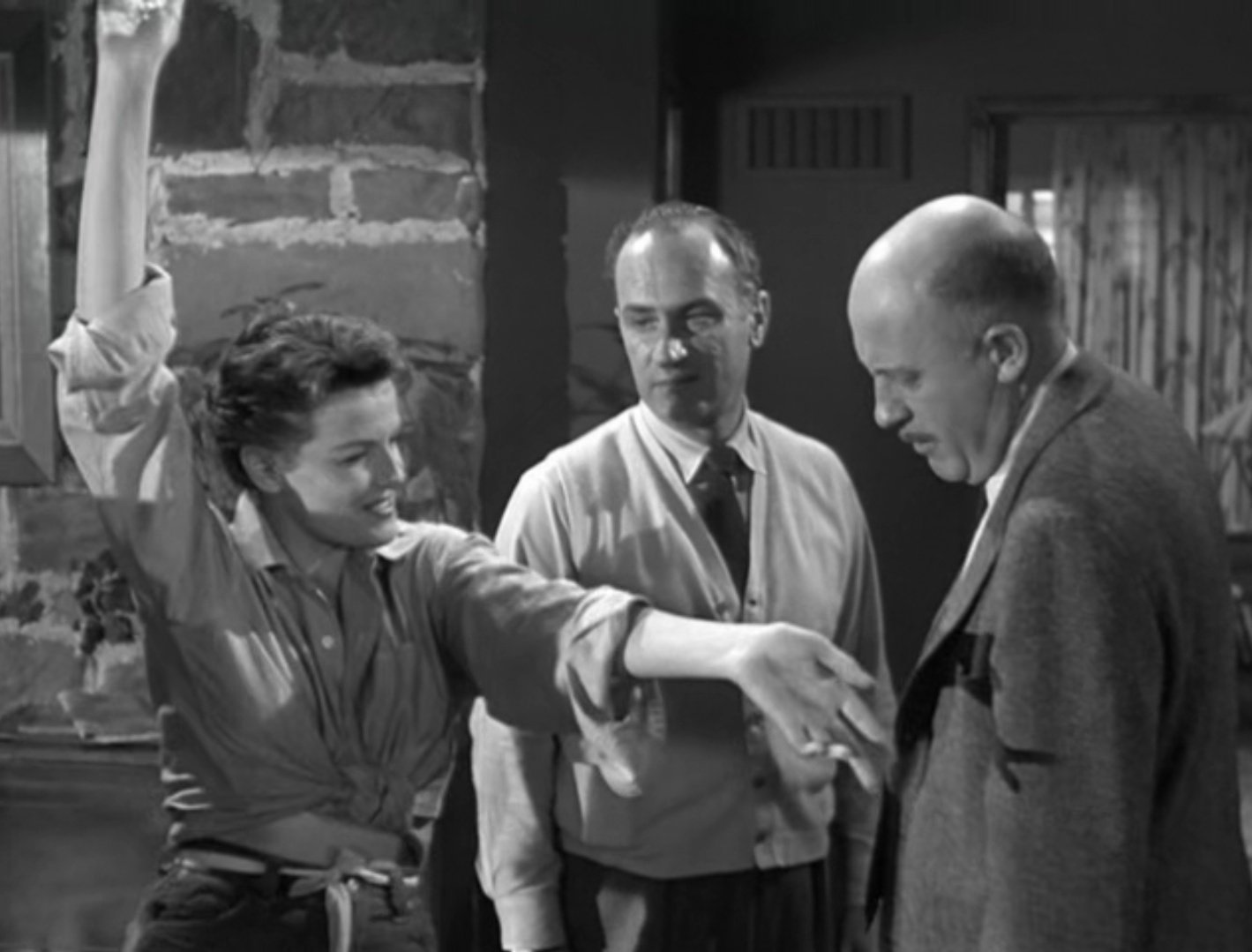
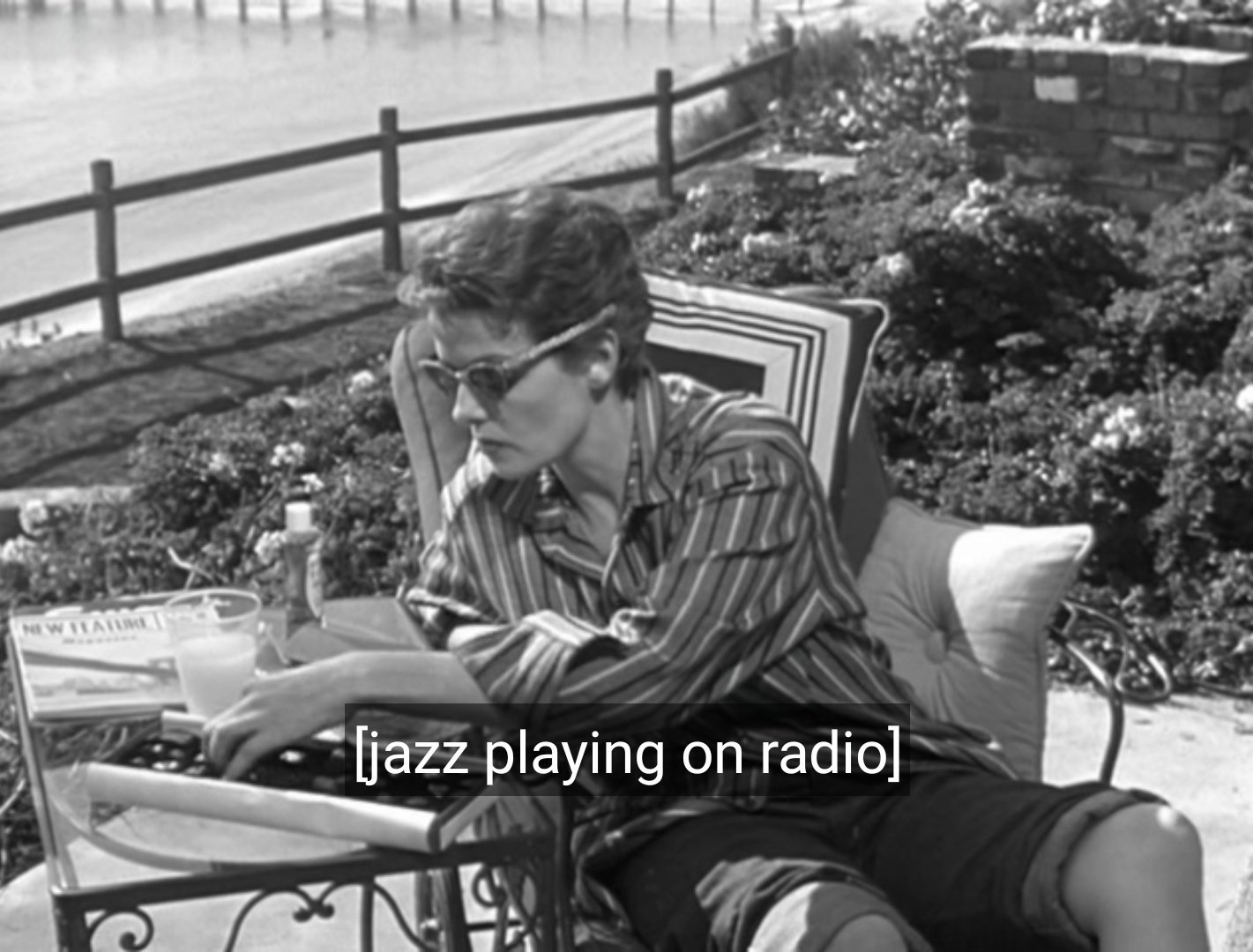
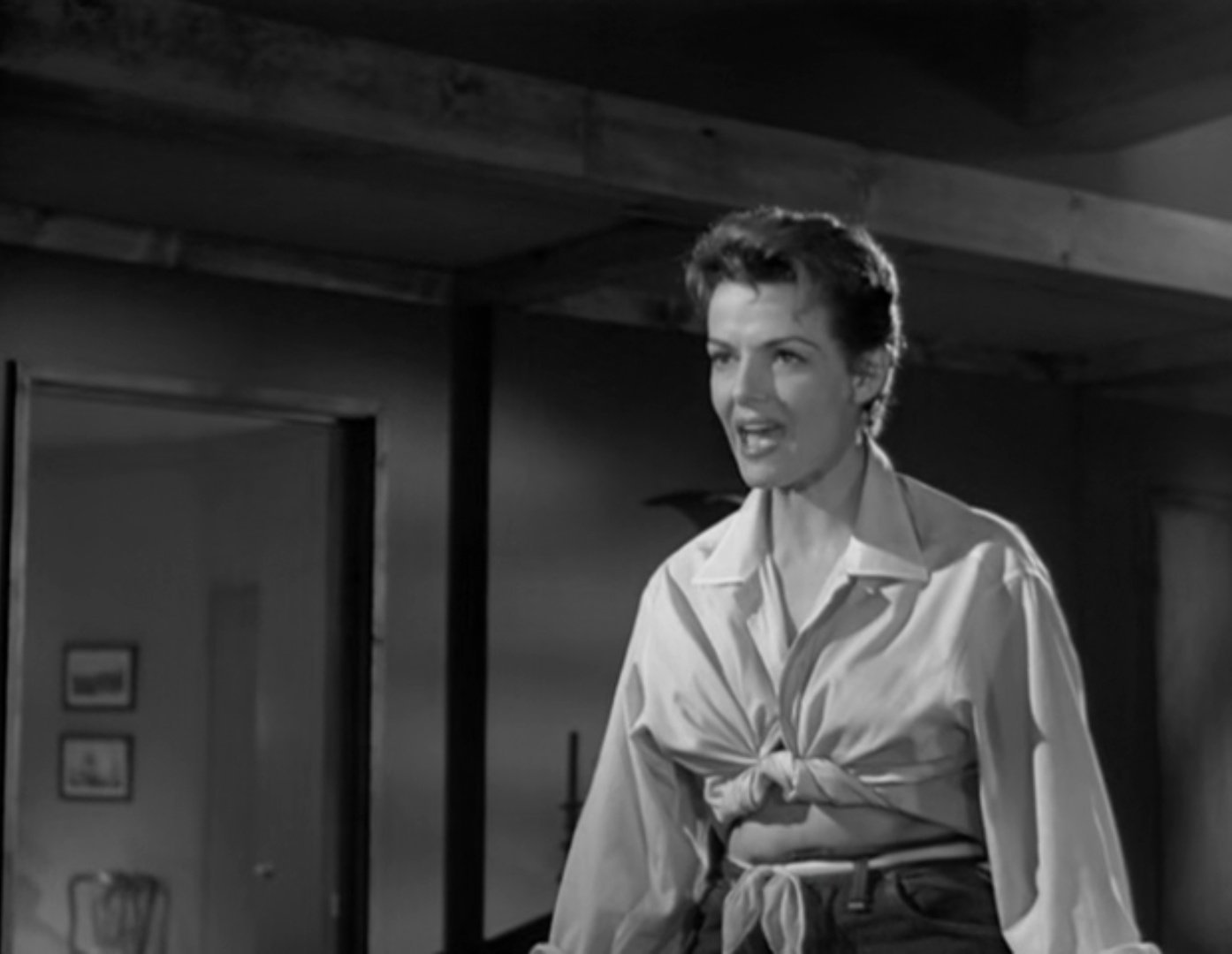
Ralph Meeker only wears soft, comfy sweaters (SWEATER WEATHER) while ragefully smoking a pipe, and there is a quiet power to that as well.
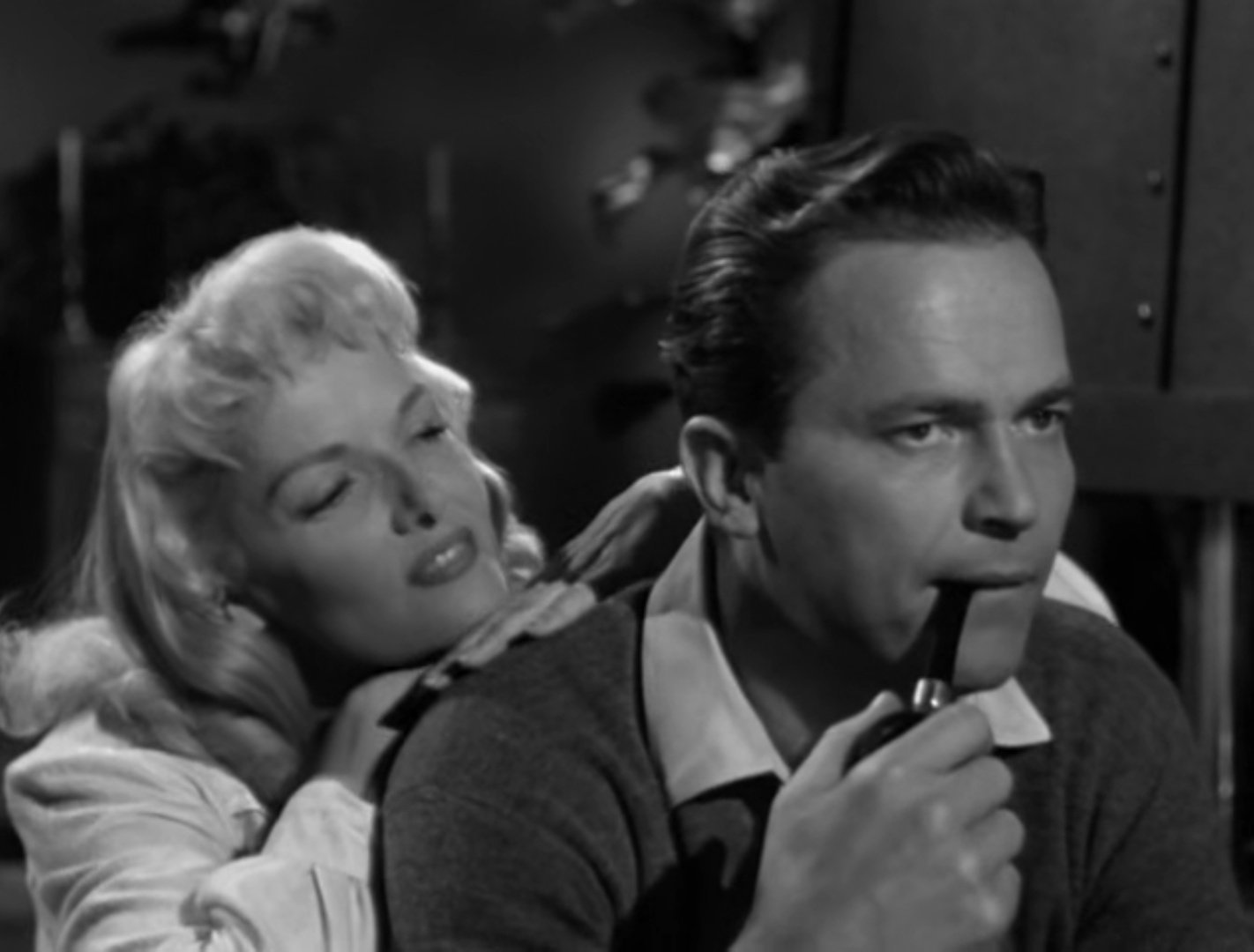
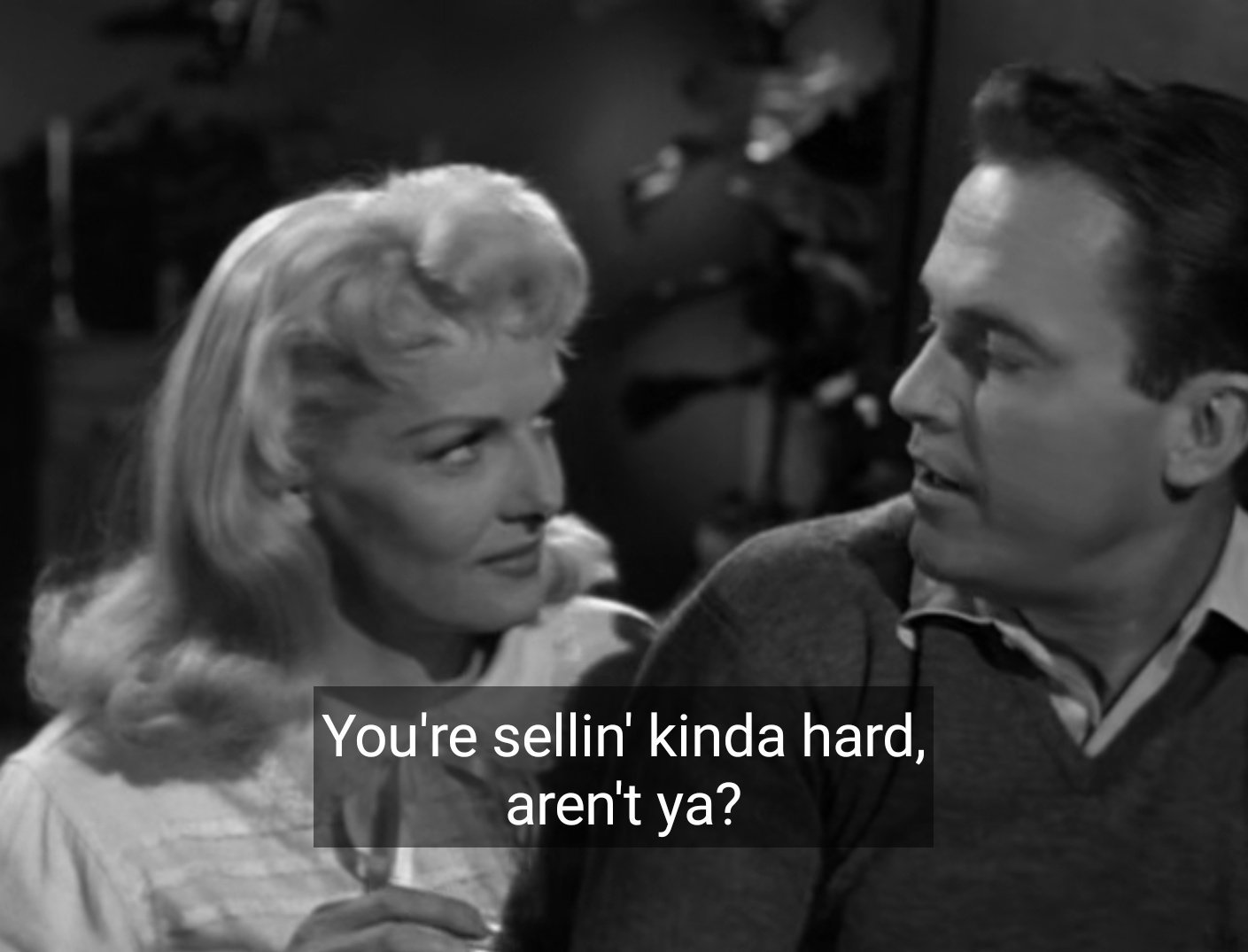
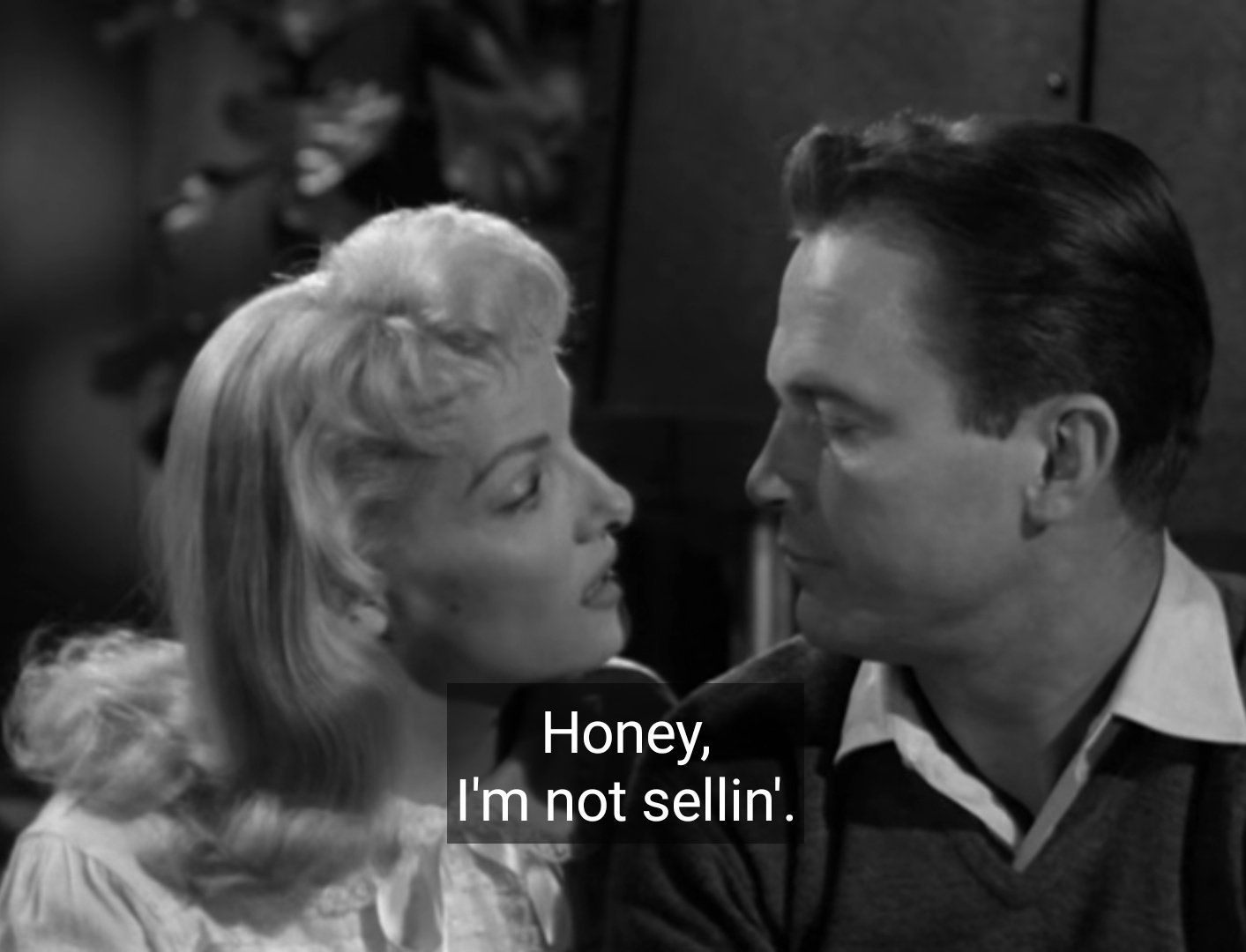
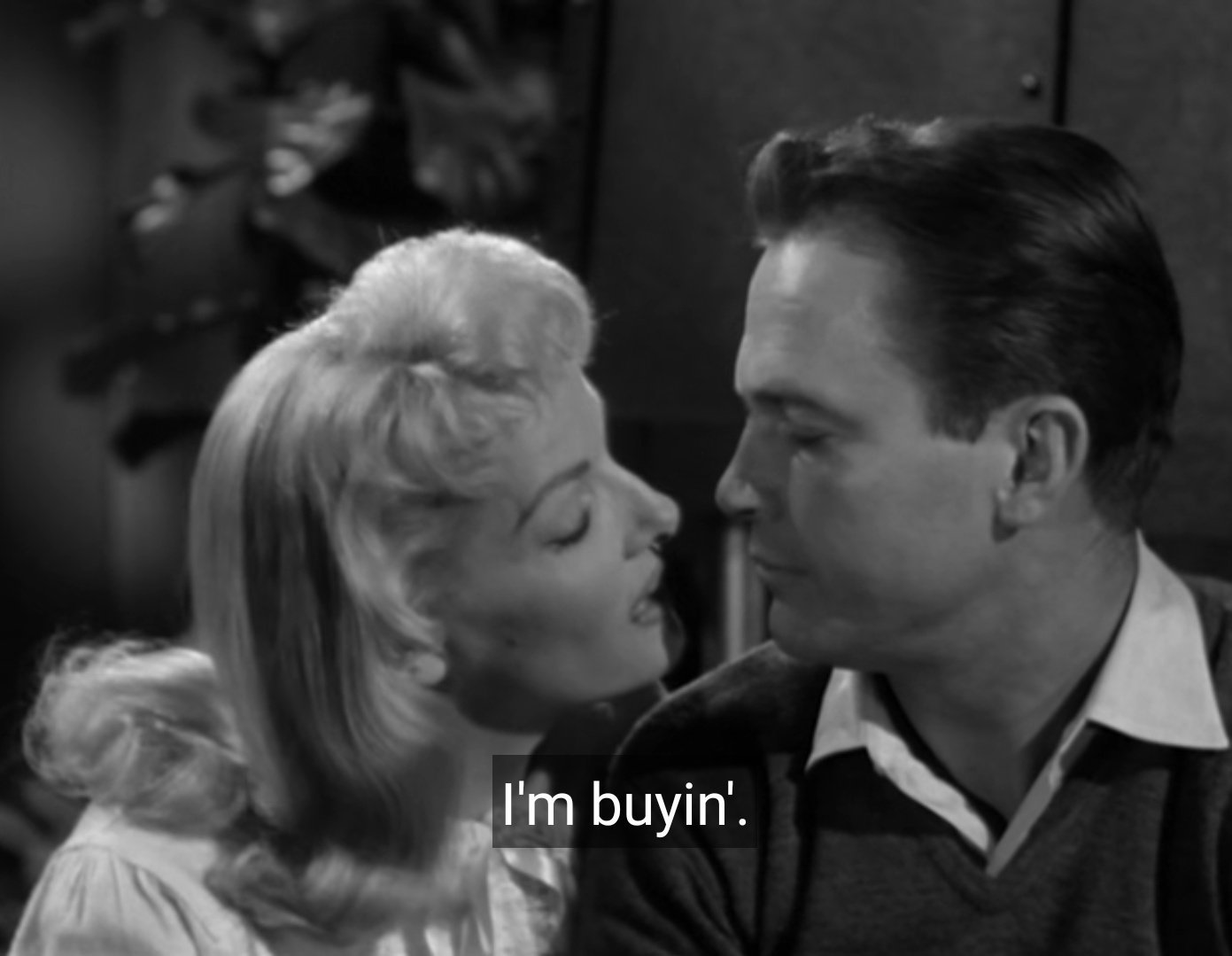
It makes absolutely no sense that this film is in black and white instead of glorious technicolor (literally do not name your film after a color and then not have color), but also it oddly makes the most sense because, again, this movie is not a light studio comedy. It’s a film about Hollywood and all its darkness.
It is also a film in which Jane Russell gets drunk on eggnog and also in which she stone-cold sober knocks out a cop and steals his car!
I am literally lightly cackling to myself--out loud--alone in my apartment right now remembering how much this film delights me. I think those of us who love cinema have a myriad of reasons why we do. I know I certainly love cinema for the transcendent moments of beauty, for its ability to immerse us into another life, for the social connections, for the community it creates, for the visually stunning images. I also love cinema for sometimes being absolutely ridiculous. Film is a collaborative medium in its very nature, and sometimes, you take a step back in your mind, and survey a work like this and realize how many people contributed to the glorious absurdity of it.
What is The Fuzzy Pink Nightgown if not a product of dozens and dozens of skilled creators who all thought to themselves, “yeah, this will work”?
It does work. It is a great time. It is also a little bit about Stockholm Syndrome. But, mostly, it is about Jane Russell being tall and wearing hats and having absolute control over her image for one glorious film.
originally published on The Classic Film Collective on 11/07/2021.


